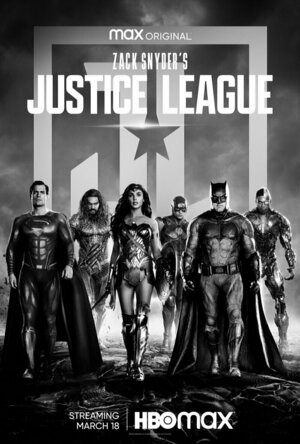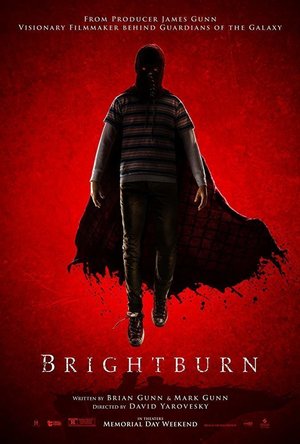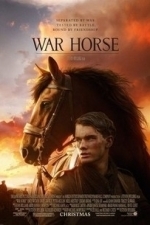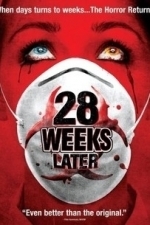Bob Mann (459 KP) rated Zack Snyder's Justice League (2021) in Movies
Apr 5, 2021
Only the Justice League’s combined talents might be enough to stop them – but Batman (Ben Affleck) is having trouble in getting Wonder Woman (Gal Gadot), Aquaman (Jason Momoa), Cyborg (Ray Fisher) and The Flash (Ezra Miller) to work together. And even then, they reckon they might be a man short!
Positives:
- Well - it's so much better than the original 2017 version of "Justice League", but then that's not saying much! (I realise that I never did a review for that movie, which I saw on a transatlantic flight - - I put the whole incoherent mess down to my jetlag. But no.... it really was an incoherent mess!).
In the Snyder cut, we gain a much broader introduction to all of the main characters, especially to Barry Allen (the Flash) - in a very entertaining pet shop interview scene - and Victor Stone (Cyborg). And Steppenwolf gets more air time to flesh out his character.
- The story I find very similar to the Marvel equivalent: with Darkseid = Thanos; boxes = stones; Avengers = Justice League! But the story is at least now coherent and flows well. Its action set pieces, especially the ultimate defeat of Steppenwolf (nice decap!), are exciting.
- Some of the distracting scenes (the trapped family in the Russian ruins is a key example) have been excised from this version, making for a significant improvement.
Negatives:
- I'm with Mark Kermode in being a little bit mystified by all of the rave 5* reviews for this one. By anyone's imagination, a run time of 242 minutes is over-indulgent.
- Although the epilogue scene, featuring Jared Leto's Joker and a Batman f-bomb, is entertaining, it actually adds nothing to the exposition and could have been dropped to reduce the bladder-testing run time.
- That 4:3 screen ratio! JUST WHY SNYDER, WHY? There's one scene in particular, where all six members of the Justice League line up in the sunset to dramatic swelling music. The screen ratio forces Snyder to film it at a 60 degree angle to get them all in! "Galaxy Quest" intelligently used three different screen ratios, to great visual effect. So I could perhaps understand it if the 'flashback' scenes had been 4:3 and the rest in 16:9. But as it is, the usage is gimmicky, making (imho) no sense for a big fantasy spectacle like this.
- The Junkie XL (as Thomas Holkenborg) soundtrack I'm afraid did nothing for me.
Summary thoughts:
It's a film, for sure. Is it a watchable film now... hmm, yes just about. And it has scenes which indeed are highly entertaining. But if you follow my One Mann's Movies blog you should know by now my view on movies that extend beyond 90 minutes... they need to justify that delta running time. And by outstaying this target by another 90 minutes... and then by ANOTHER 62 minutes borders on taking the <proverbial>. It's not Shakespeare!
(For the full graphical review, check out the One Mann's Movies review here - https://bob-the-movie-man.com/2021/04/04/zack-snyders-justice-league-does-lipstick-on-the-pig-work/).

TapGlance Interior Design
Lifestyle and Productivity
App
TapGlance is a powerful and intuitive interior design app. Within minutes and without any prior...

Kids Games Educational Babies
Games and Education
App
"Funny Food 2" it includes 15 various amusing games in ALL topics which are required for your...
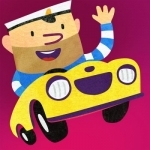
Fiete Cars
Education and Games
App
In Fiete Cars the children are the master builders. In this app kids can create their own car game....

Ultimate Fox Simulator
Games and Entertainment
App
Dash into a brand new adventure as a wild Fox! For the first time ever, choose from THREE PLAYABLE...
Lee (2222 KP) rated Brightburn (2019) in Movies
Jun 11, 2019
Brightburn begins by mirroring the origin story of Superman very closely - even the soundtrack reminded me of the music from 2013 movie Man of Steel on more than one occasion! Tori (Elizabeth Banks) and Kyle Bryer (David Denman) are a happily married couple, living on a farm and longing for a child of their own. And then one night, a meteor crash lands out in the nearby woods, bringing them a baby boy who they adopt as their own. We see home movies of a normal baby/toddler as he grows up as part of a normal, loving family. And then we move forward 10 years to present day.
As an adolescent, Brandon (Jackson A. Dunn) begins to experience some change in his life. His parents put it down to hormones, and attempt to give him the talk on girls and the facts of life, but it's a lot more than that. The rock shaped vessel which carried Brandon to Earth as a baby has been locked away in the family barn all these years, hidden from Brandon, but has now started glowing red. At the same time, something within Brandon appears to have been activated, and a number of small but disturbing incidents that follow leave his parents worried. They also realise that they've never actually seen their son bleed, or even hurt before. From there, the severity of these incidents increases greatly, and it becomes clear that there is definitely something very, very wrong with Brandon.
What I loved about Brightburn was the confined, low key setting of it all. The action is restricted primarily to the town of Brightburn, never really expanding into the worldwide, CGI heavy destruction of other superhero movies. We have an incredibly relatable mother who is out to love and protect her son until the bitter end, a father who becomes scared and horrified by everything that is unfolding, and then this powerful boy tearing the family apart - unpredictable and showing no sign of remorse or inner turmoil over everything that is happening. Outside of that, the action is confined to a relatively small cast - the local police, extended family and some other kids from school who we all follow throughout the movie - there's a lot of character depth to be found in Brightburn, which greatly adds to its overall enjoyment.
As is the norm these days though, the trailer does give away the majority of Brandon's targets and where he attacks them, meaning you kind of know what to expect for a lot of it. However, what the trailer doesn't give away is the atmosphere and the eeriness that builds to each of those shocking (and gory) moments and there are still plenty of jump scares and shocking scenes to keep you on your toes throughout. It builds to a climax which once again isn't a CGI overload, relying on shock and horror to deliver it's interesting conclusion. And, most importantly, it leaves the door open for what could be a very interesting sequel. I'm all up for that, and the direction that hints at, as I found Brightburn to be a very enjoyable and fresh take on the superhero genre.
Movie Metropolis (309 KP) rated War Horse (2011) in Movies
Jun 11, 2019
However, here, the ‘king’ relaxes a little and delves into proper old fashioned story telling with the emotional rollercoaster that is War Horse. Teaming up with John Williams once again, the duo delivers a beautiful score to accompany a beautifully shot film.
Jeremy Irvine stars alongside a full roster of celebrities including Harry Potter’s David Thewlis and Thor’s Tom Hiddlestone in what can only be described as one of Spielberg’s greatest films.
The film opens with some awe inspiring shots of the Devon countryside, with Albert Narracott (Jeremy Irvine) staring, masterfully at two horses in a field. Fast forward a few years and his alcoholic father Ted, played wonderfully by Peter Mullen purchases one of them in an auction, hoping to turn it into a plough horse. This horse becomes the focus of the entire film and is nicknamed Joey by Irvine’s character.
After the usual, Spielberg sentimentality, Joey is summoned to help the English army in the First World War. Obviously, this doesn’t go down too well with Albert and he promises that one day, they will find each other. It’s hard to describe just how heart-breaking these scenes are, as Joey is led away by his new trainer (Tom Hiddlestone) and all Albert can do is watch.
After being defeated by the Germans in a deadly ambush, Albert is informed that Hiddlestone’s character, Captain Nicholls has been killed in battle. Assuming the worst, Albert starts to prepare to either reunite with his beloved steed, or discover whether or not he has perished.
Spielberg has created a shockingly beautiful film as Joey loses Captain Nicholls and roams the countryside unmanned trying to escape the clutches of the German army. Unfortunately, on occasion, he runs right into them and becomes an artillery horse, pulling canons and other weapons.
The shots of no-man’s land as the horse time and time again escapes are breath-taking and show the scale of the destruction like nothing I’ve ever seen. Spielberg has a knack for scale and in War Horse, this is exceptionally poignant; shots of a horse graveyard and the grey barren landscape are examples of fine film-making. To say you’ll be in tears is somewhat of an understatement as Joey, terrified from the ordeal he is being taken through loses comrades, crashes through barbed wire and nearly gives up on life.
This coupled with John Williams best score since Jurassic Park ensures that this is a subtle blockbuster to be enjoyed by all.
However, the film isn’t perfect. On occasion, it delves into unnecessary sentimentality and Spielberg must’ve had a book of movie clichés with him at some points during the shoot, like the cheesy sunset ending and the token pulling through in the face of adversity. These are, however, small points in a film which is a spectacle to behold.
The animals no doubt steal the show, but their human counterparts do well in their roles. Jeremy Irvine is fabulous and was an unusual but totally justified choice for the part. David Thewlis shows how versatile he really is as an actor, playing the heartless landlord, ready to ship the Narracott family out of their farm.
War Horse is a film which hits with a huge dose of emotion. John Williams and Steven Spielberg are an unstoppable combination and what the film does best is show off its directors prowess as an artist, not a film-maker. The special effects are sparse because the story doesn’t require them, but when they are there, such as in the battle scenes, they help the story along, instead of hindering it.
It may not quite match the dizzy heights of Schindler’s List and Jurassic Park as Spielberg’s best, but it fits in between excellent Spielberg and spectacular Spielberg. Take some tissues and prepare yourself and you’ll be all set.
https://moviemetropolis.net/2012/01/22/review-war-horse-2012/
Darren (1599 KP) rated 28 Weeks Later... (2007) in Movies
Jun 20, 2019
We find out that bringing kids back was a bad idea as the two go running off into the city outside the safety zone which leads to them discovering their infected but not turned mother. The mother locked up in quarantine Don goes to visit but this only leads to the virus taking over the safety zone and all hell letting lose. We follow solider Doyle (Renner) and scientist Scarlet (Byrne) as they try to save the children from the infected.
28 Weeks Later does what many sequels fail to do, creates a fresh look at the aftermath of the epidemic without dragging our characters from the original back even though their story is complete. It also takes the idea that the outbreak is over and focusing on the rebuilding works really well too. On its down side it does fall into the same old survivors running from infected because of a stupid mistake. It doesn’t manage to bring the characters into the interesting zone because it goes into the idea of the children needing saving which takes away what was created. It is enjoy action horror but not to the same level as the original. (7/10)
Actor Review
Robert Carlyle: Don the husband who abandons his wife then brings his kids to London to help rebuild the city from within the safe zone. Robert does a solid job and everyone will remember that opening sequence. (7/10)
don
Rose Byrne: Scarlet scientist who is trying to help figure out the virus, she isn’t happy they have bought kids back because they don’t fully understand the virus and once the outbreak happens again she goes out her way to save them. Rose gives a solid performance but doesn’t shine as much as she could. (6/10)
Jeremy Renner: Doyle slick sniper who is one of the protectors of the city but once the outbreak happens he joins in the rescue attempts while the virus ends up with a shoot on site policy that orders demand. Jeremy does a good job and we get early ideas of what he will be like as Hawkeye. (7/10)
renner
Imogen Poots: Tammy daughter of Don who keeps looking after her brother and together they go into the restricted zone which ends up causing all the problems. Imogen does a good job in the early role. (7/10)
poots
Support Cast: 28 Weeks Later has a bigger supporting cast but in the end they all make the typical errors in an infected outbreak.
Director Review: Juan Carlos Fresnadillo – Juan does take the film in a slightly different direction which is good but he loses the suspense the first one had. (7/10)
Horror: 28 Weeks Later continues to use infected as its horror using survivor horror elements. (9/10)
Settings: 28 Weeks Later uses London as its setting well using the more iconic locations for the audience. (8/10)
Special Effects: 28 Weeks Later does take the effects to the next level with the helicopter scene showing how far they have come. (9/10)
Suggestion: 28 Weeks Later is one for all the horror fans to enjoy, it doesn’t quite reach the same levels as its predecessor but is still a good watch. (Horror Fans Watch)
Best Part: Opening sequences is very intense.
Worst Part: typical supporting characters.
Action Scene Of The Film: Opening sequences
Kill Of The Film: Helicopter
Scariest Scene: Locked in the basement.
Believability: No (0/10)
Chances of Tears: No (0/10)
Chances of Sequel: Left open for one but we haven’t had one yet.
Post Credits Scene: No
Oscar Chances: No
Box Office: $64 Million
Runtime: 1 Hour 40 Minutes
Tagline: The Threat Is Everywhere
Overall: Solid Sequel
https://moviesreview101.com/2015/03/15/28-weeks-later-2007/
Hazel (1853 KP) rated The Care and Management of Lies in Books
Dec 17, 2018
British author Jacqueline Winspear states in the letter from the author at the front of the book that the idea for this novel came from a second hand copy of a book titled <i>The Woman’s Book</i> by Florence B Jack (1911) containing an inscription revealing that it was presented as a gift to a woman on her wedding day in July 1914. The story within </i>The Care and Management of Lies</i> is Winspear’s imaginings about who that woman was and what her life was like.
The book focuses primarily on four characters, the main being Kezia Brissenden née Marchant who receives the gift <i>The Woman’s Book</i> from a close friend, Dorothy “Thea”, who so happens to be the older sister of her new husband, Tom. The book was not a particularly kind gift as it emphasized Kezia’s upbringing and who, due to her father being a reverend and employer of maids and cooks, had never produced her own meal in her life nor had any experience with running a household, let alone a farm – her new home.
Whilst Kezia determinedly throws herself into her new role, showing her love for Tom through the food she learns to cook, Thea, living in London, is drifting away from their friendship. With the possibility of war on the horizon, Thea joins a pacifist movement, which is somewhat ironic as she was once involved with the suffragettes. On the other hand, once war is declared, Tom decides to enlist in the army as does neighbour, Edmund Hawkes, a man who is rather envious of Tom and his lovely wife. The reader receives two different perspectives of the terrors of war from these characters, but then also another, surprisingly, from Thea who rejects pacifism and goes out to France to help in anyway she can. This leaves Kezia at home alone with the effects the war has on Britain.
The love between Kezia and Tom is emphasized through the letters they send each other. Both are lying about their situations by trying to convince the other that they are better off than they really are. The thing that keeps them both going are Kezia’s descriptions of her fictional meals that she prepares for Tom’s dinner, describing in great detail the preparation and taste of the food.
Each chapter begins with a quote from <i>The Woman’s Book</i> (and later <i>Infantry Training</i> and <i>Field Service Pocket Book</i>) that relate to the particular events occurring in the story at that time. This is a great way of underlining the significance of that wedding present to the storyline.
The narrative quickly changes from character to character which, although helping to keep the pace of the novel, can sometimes be a little confusing. It also made it difficult to get into the story at the beginning. Sometimes it took a lot of concentration to follow the text and those with minds that easily wander may constantly find themselves suddenly reading from a different point of view without having noticed the change over.
Winspear’s grandfather was a soldier in the trenches during the Great War and so it seems likely that some of the scenes may be based on his experiences. If that is the case then it can be believed that <i>The Care and Management of Lies</i> is as accurate as can be in terms of the war and life on the front lines. Winspear also does not attempt to gloss over any of the war horrors, therefore does not create the unlikely “and they all lived happily ever after” ending that other writers of war stories have done in the past.
Those interested in war themes may be particularly interested in this book, especially as this year (2014) is the anniversary of the Great War. <i>The Care and Management of Lies</i> is a piece of literature to add to the mountain of media coverage of the commemoration of the war.
